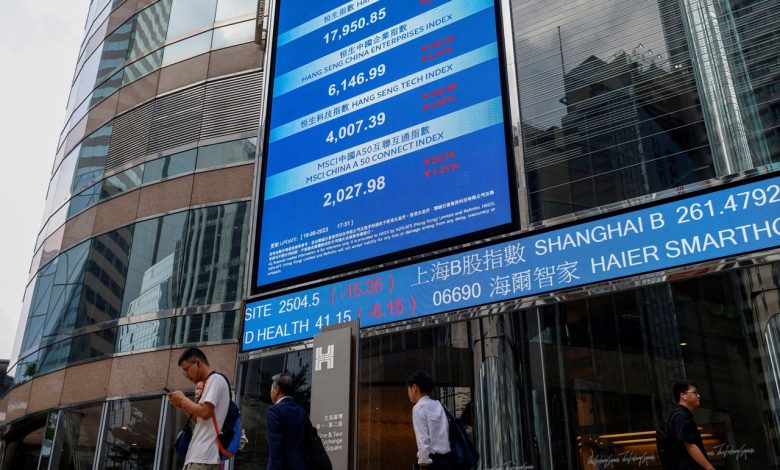Oil prices drop on easing fears over Middle East, most markets rise

OIL prices extended losses on Tuesday after a report said Israeli Prime Minister Benjamin Netanyahu had told US President Joe Biden he would not strike Iran’s crude or nuclear facilities in retaliation for a missile attack earlier this month.
The sell-off came as the commodity is hit by worries about China’s economic outlook after Beijing failed to announce any new stimulus at a weekend briefing, nor provide details on a raft of measures unveiled at the end of last month.
However, equity traders were broadly upbeat, pushing most Asian markets higher after another record close for the Dow and S&P 500 on Wall Street, with the third-quarter reporting season about to get under way.
Both main oil contracts dropped around three per cent in early exchanges – having lost at least two per cent on Monday – after the Washington Post reported that Netanyahu had pledged to target Iran’s military rather than its crude and nuclear sector.
Investors have been on edge since Tehran launched a barrage of missiles at Israel at the start of the month, fuelling concerns of a response that could spark a region-wide conflict.
The commodity has swung wildly in recent weeks after Tel Aviv opened a new front against Hezbollah militants in Lebanon, while also continuing its battle against Hamas in Gaza.
BT in your inbox

Start and end each day with the latest news stories and analyses delivered straight to your inbox.
Netanyahu on Monday vowed to hit Hezbollah without mercy, a day after the Iran-backed group’s deadliest strike on Israel since the start of their war in late September.
Adding to the downward pressure on oil is concern that China would struggle to reignite the world’s second-biggest economy after a much-anticipated news conference on Saturday left investors wanting.
There had been hope Finance Minister Lan Fo’an would unveil a multi-billion-dollar package of support including fiscal help to go alongside measures announced in September that largely focused on the troubled property sector.
The disappointment, which came after another briefing that fell short last Tuesday, has dampened a rally on Chinese markets, with Hong Kong and Shanghai paring the blockbuster surge that greeted the initial batch of stimulus.
Weaker-than-expected trade and inflation data for September highlighted the need for economic help, though analysts warned they did not see any details being released until an upcoming Communist Party meeting that has yet to be set.
Key data later in the week, including on retail sales, trade and economic growth, could provide a fresh update on the state of the country’s finances.
“Everywhere you look, China is in desperate need for fiscal support, with very weak domestic demand alongside an economy facing deflationary pressures and softer global demand,” said Rodrigo Catril at National Australia Bank.
Shares in Shanghai and Hong Kong fell on Tuesday, though there were gains in Tokyo as traders there returned from a three-day weekend to push the Nikkei 225 above 40,000 points for the first time since July.
Sydney, Seoul, Singapore, Taipei, Manila and Jakarta also rose. AFP

